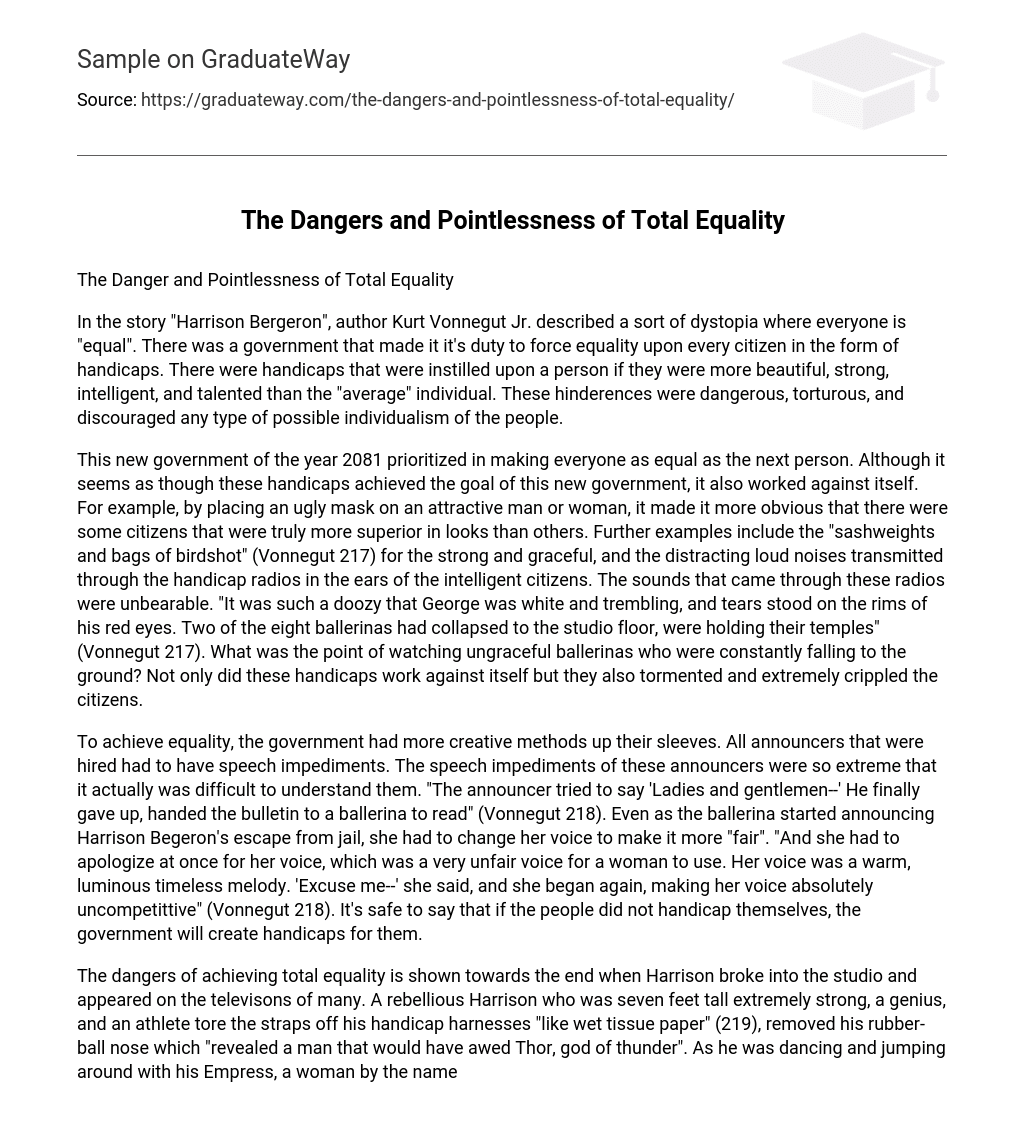The peril and futility of complete equality.
In the story “Harrison Bergeron”, Kurt Vonnegut Jr. depicted a dystopia in which the government enforced equality by imposing handicaps on individuals who were deemed more beautiful, strong, intelligent, or talented than the “average” person. These handicaps were oppressive, cruel, and discouraged any form of personal expression or individuality.
This new government in the year 2081 had a primary focus on achieving equality among all individuals. While the implementation of handicaps seemed to accomplish this goal, it inadvertently highlighted the disparities between citizens. For instance, by forcing attractive individuals to wear unattractive masks, it became obvious that certain individuals possessed superior physical appearances. Additionally, the government assigned “sashweights and bags of birdshot” (Vonnegut 217) to those who were strong and graceful, and transmitted unbearable loud noises through handicap radios worn by intelligent citizens. The distressing sounds caused tremendous suffering, as illustrated by George’s physical reaction and the collapse of two ballerinas. The presence of ungraceful ballerinas constantly falling to the ground served little purpose. These handicaps not only contradicted the government’s aim but also inflicted torment and severe limitations on its citizens.
In order to achieve equality, the government implemented unconventional methods. All hired announcers were required to have speech impediments, which were intentionally extreme to the point of being difficult to understand. According to Vonnegut (218), one announcer even gave up and handed a bulletin to a ballerina to read. However, even the ballerina had to modify her voice to ensure fairness. As she announced Harrison Begeron’s prison escape, she apologized for her voice and made it intentionally uncompetitive. This suggests that if individuals did not handicap themselves, the government would impose handicaps on them.
The end of the story demonstrates the perils of achieving complete equality. Harrison, a rebellious figure who possessed exceptional qualities such as immense height, great strength, intelligence, and athleticism, forcefully removed his handicap harnesses as if they were mere tissue paper. With his rubber-ball nose discarded, he displayed a visage so impressive that even the mighty Thor would have been awestruck. Harrison and his Empress engaged in lively dancing and jumping when they were interrupted by the arrival of Diana Moon Galmpers, the Handicapper General. Carrying a double-barreled ten-gauge shotgun, Galmpers promptly shot and killed the defiant couple. The government referred to those who resisted their goals as “dangerous” and subjected them to immediate punishment.
The society depicted in this 2081 dystopia is deeply flawed as it severely restricts the freedom of its citizens and subjects those with special abilities or attributes to constant torment. Consequently, the resulting society is made up entirely of individuals who are slow, unintelligent, unattractive, and considered average. Striving for total equality eliminates any form of individuality, which is not only pointless and dangerous but also burdensome to the society.





